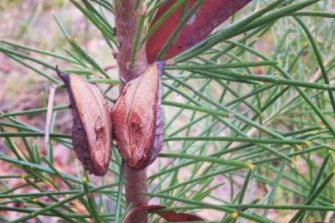
This project is developing adaptive fire management strategies to improve prospects for threatened ecological communities by integrating remote sensing, ground survey and citizen science with management.
The 2019/2020 bushfires were absolutely devastating on the east coast of Australia. Both humans and wildlife lost homes, and these fires were some of the largest and hottest we have seen. Changes to our environment and climate are making bushfires larger and more intense - and this may affect how well some ecological communities recover.
We're particularly interested in fire-sensitive ecological communities, including two peatlands, four rainforests and two wet eucalypt forests, which urgently need assessment and restoration after the 2019-20 fires. They are increasingly vulnerable under a drying climate and are highly sensitive to fire. We address four threats, using a monitoring design to evaluate recovery and build capacity for decision making: frequent fire and post-fire weed invasion, erosion and predation.
What can YOU do?
As part of our research activities, we need citizen scientists to record which species are recovering after the massive 2019/20 bushfire season. All you need is a phone to photograph and record what you see - anything from resprouting plants to animals returning home.
Providing it's safe to do so, take a walk in areas of burnt bushland and upload your observations to the Environment Recovery Project.
Head to the iNaturalist website to find out more!













